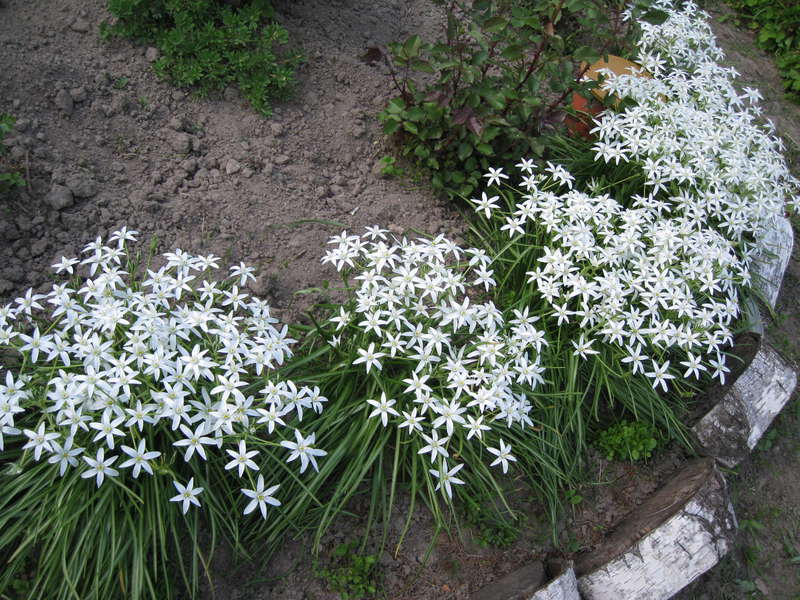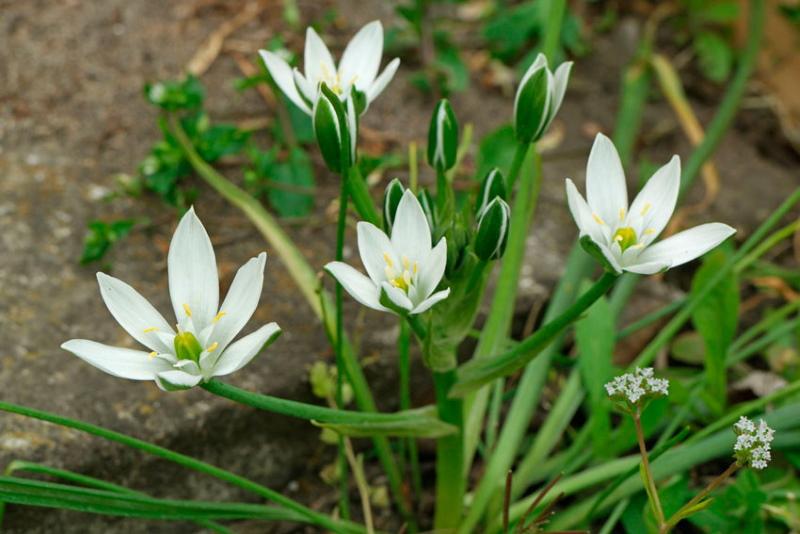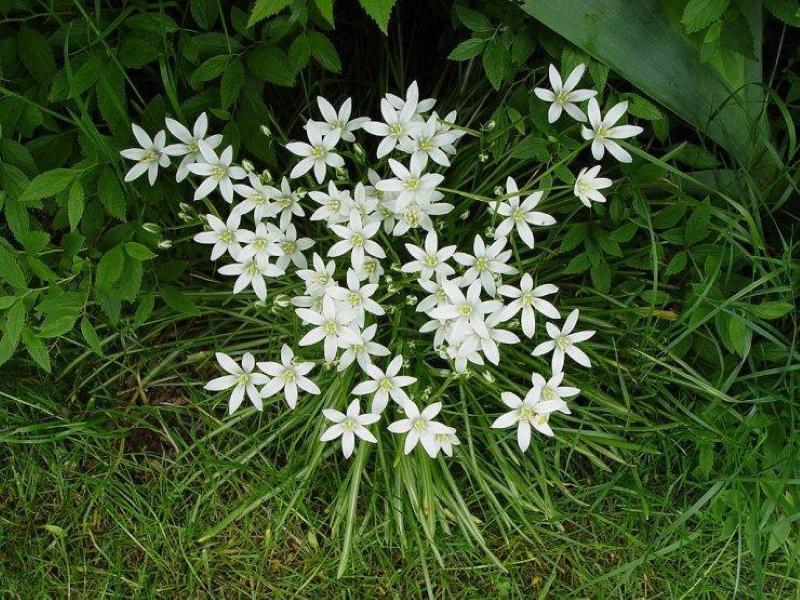Delicate spring flower poultry farm - planting and care in the open field
 Its delicate white flowers look like little stars that bloom not only in the wild at the end of spring, but also in flower beds. This is a small but very beautiful poultry farm, planting and caring for which in the open field is generally simple and will not cause difficulties. Under natural conditions, this flower prefers a temperate climate and subtropics. But on the territory of our homeland, he also managed to take root, moreover, as a pot and street plant. Most often, however, the poultry farm can be found in flower beds. There it is planted along with the rest of the bulbous crops, to which it belongs.
Its delicate white flowers look like little stars that bloom not only in the wild at the end of spring, but also in flower beds. This is a small but very beautiful poultry farm, planting and caring for which in the open field is generally simple and will not cause difficulties. Under natural conditions, this flower prefers a temperate climate and subtropics. But on the territory of our homeland, he also managed to take root, moreover, as a pot and street plant. Most often, however, the poultry farm can be found in flower beds. There it is planted along with the rest of the bulbous crops, to which it belongs.
Poultry house - planting and care in the open field

The root system, as already clear, has the shape of a bulb, round or oblong, covered with scales. Flowers grow in dense bushes from a variety of such bulbs. Of these, narrow and long linear leaves tend upward. Their central vein is of a lighter color, almost white against the general green background of the plates. Bushes bloom in the month of May, at the beginning or at the end, depending on the specific species. White flowers in the form of stars are collected in small racemose inflorescences. A characteristic feature of almost all poultry farms is the presence of a green stripe on the perianth leaves on the outside.
For the unusual "star" shape of the flowers, the plant is called the milk or Bethlehem star. In the scientific literature, the poultry farm is known as ornithogalum.
Choosing a place, time and method of planting a poultry farm
 The flower reproduces mainly in a vegetative way: by bulbs when dividing a bush or by children. The seed method is also possible, but not practical. Seeds need stratification and most often they are sown directly into the ground before winter. However, delicate young shoots are easily damaged when thinning. And such bushes will bloom only in the fifth year after sowing.
The flower reproduces mainly in a vegetative way: by bulbs when dividing a bush or by children. The seed method is also possible, but not practical. Seeds need stratification and most often they are sown directly into the ground before winter. However, delicate young shoots are easily damaged when thinning. And such bushes will bloom only in the fifth year after sowing.
It is more convenient to plant the poultry farm with bulbs. It is not particularly demanding for lighting, it can grow both in the sun and in partial shade. But it is better not to plant in deep shade - it will not bloom. But the soil must be chosen light, preferably sandy. Clay soil is contraindicated, because moisture stagnates in it, and the bulbs will begin to rot.
The bulbs are planted in the holes one by one, the planting depth should not exceed 10 cm (depending on the size of the planting material). For group planting, there should be a distance of at least 15 cm between the holes.
How to care for a garden poultry farm
 Caring for ornithogalum is as simple as possible. Moreover, it is needed only during the growing season, which is rather short in the poultry farm.After the end of flowering, which lasts about 3 weeks, almost all species go to rest until the next spring. And the aboveground part gradually dies off.
Caring for ornithogalum is as simple as possible. Moreover, it is needed only during the growing season, which is rather short in the poultry farm.After the end of flowering, which lasts about 3 weeks, almost all species go to rest until the next spring. And the aboveground part gradually dies off.
So, what does a plant need:
- moderate watering - you cannot fill in, it will rot;
- several dressings in the fall with organic matter, but if the soil is nutritious, then you can not fertilize at all;
- transplant (separation of overgrown bushes) every 4-5 years.
As for wintering, in the southern and middle lane poultry farms winter well themselves. In more severe regions, especially with little snow in winter, it is better to cover them with spruce branches. And the most thermophilic poultry farms, dubious and Arabic, even recommend digging. Their bulbs are either brought into the cellar for storage, or transplanted into pots and kept in the house until spring.